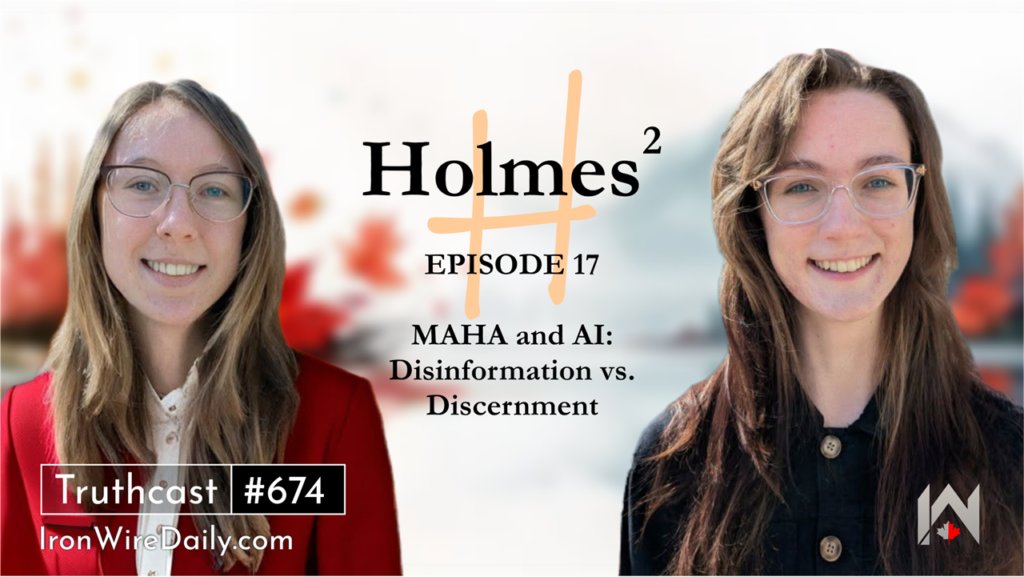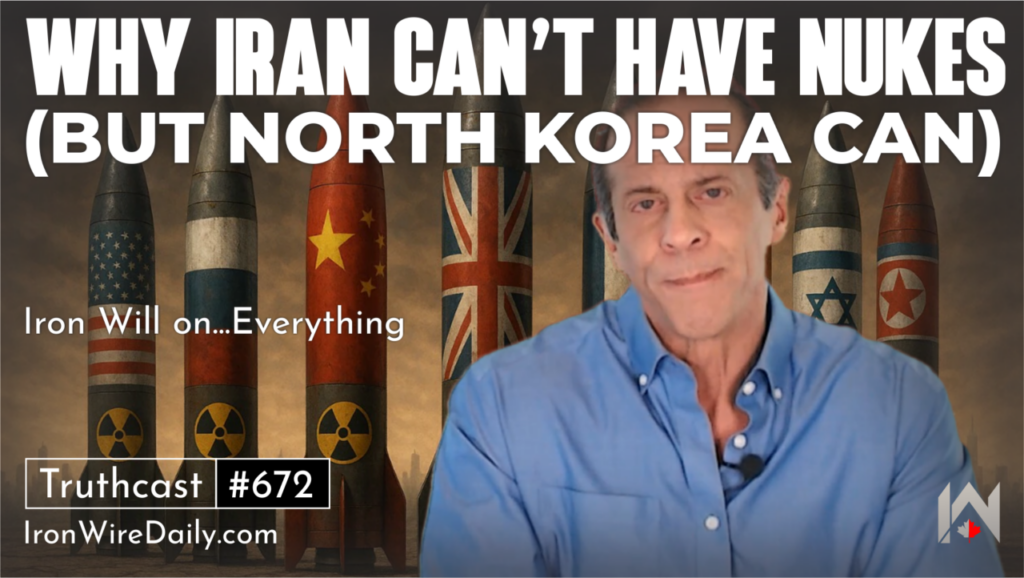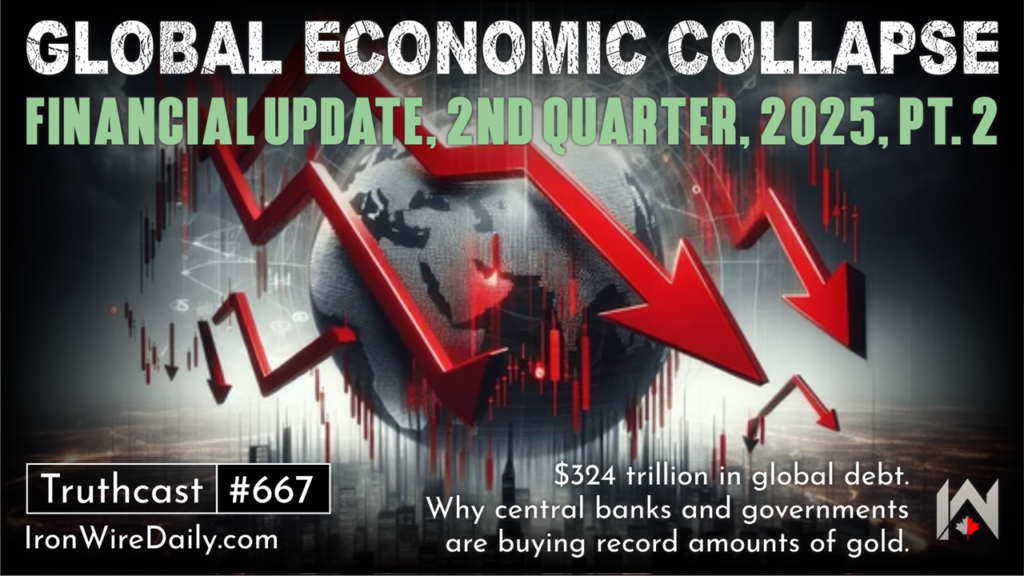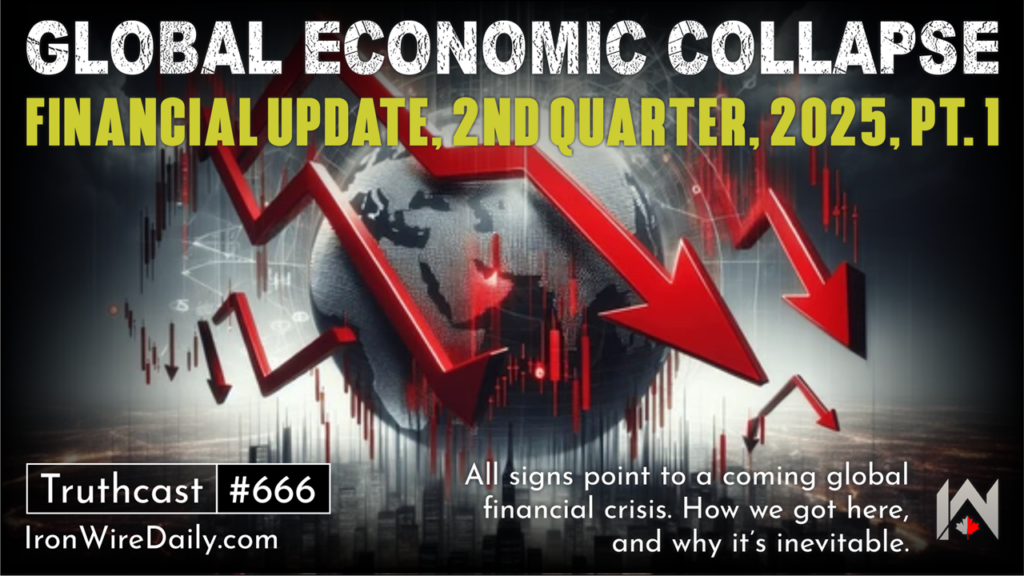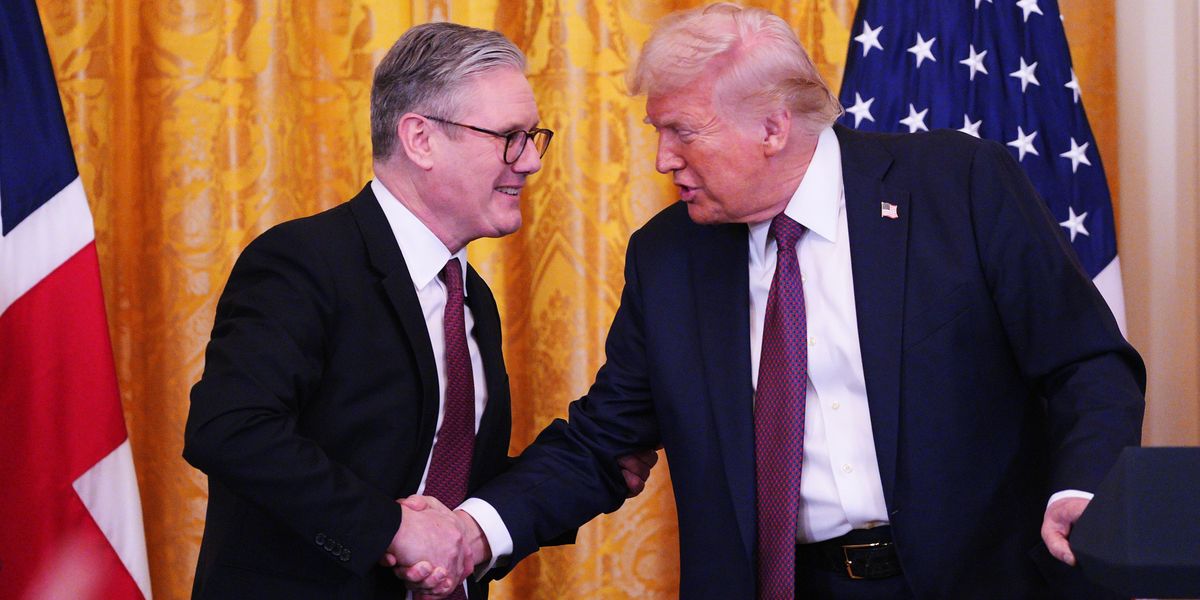Episode 7: “Parrots, Profiling and Global PsyOps”
Madison and Maycee Holmes
Want more Holmes?
Find them on Substack, Rumble and Youtube
You can also contact the Holmes sisters directly at Connect@at-home-with-holmes.com
(0:01 - 0:07) Hi everyone, I'm Madison Holmes. And I am Maycee Holmes. And you're watching Holmes Squared. (0:08 - 3:30) Yay. Yay indeed. Okay guys, we're in for a big one this time. Yes. And how I'm going to start it is with this question. Maycee, how do you feel about parrots? I don't even know how to answer that. What? What? What? Like the bird. They're fine. I have nothing against them. Yeah? Yeah. Okay, do you think it's, you know, weird that you can teach them to just copy what we say? Weird? Yeah, like is it okay that parrots do that? They're, I guess, imitating us to some degree. Okay. Yeah. So it's okay because they're animals. Okay, sure. Okay. Why not? Well, are we animals? I feel like that depends on the like yes and no. In part. Okay, yes and no. So it's not enough. You would say it's incomplete just to call us animals. Yes, it's incomplete. Okay, that being the case then. Maddie did not prep me for this just FYI. That being the case then, is it okay if we just walk around like parrots and, you know, copy other people, parrot what they say? Well, not if you don't think about it for yourself. Okay. Like copyright or something like that. You can't just copy what somebody else put out there if it's their own idea, but. Okay. So you can make it yours. Well, then if it's yours, is it a copy if it's yours? No. Okay. So this is parroting is how we originally thought about it. Now we call it projecting. Projecting is what, well, you know, we, dad used to say, you know, people walk around, they just parrot, you know, kids parrot their parents. My dad said that, you know, all women are weaker than men. So it's just like, all women are weaker than men. And the kid just walks around, even whether the dad is right or not. The kid walks around, he starts parroting whatever his dad says. Now, as it gets older, you know, the kid, they'll project. So because the kid was told by their dad that, you know, all women are weaker than men. Now the kid starts walking around and assuming that everybody knows that. Everybody knows that women are weaker than men because that's just, you know, you've always known that. Everybody's always known that. So now when somebody, maybe another man, another woman, either, or, and you make the blanket statement, you know, it doesn't matter what women do. Women will always be weaker than men. And somebody goes, whoa. You have just projected your, your opinions and beliefs onto that person. You assumed that they think the way that you do. So that's like kind of the same thing, but downstream. And maybe it's an interesting way of going about it. (3:33 - 8:44) But you personally have also experienced this a couple times within the last week. Yes. Where somebody not just like, and this is the ironic thing. It wasn't just you experiencing it as in somebody parroting and projecting their thing and their opinions on you, but they assumed that you were parroting and projecting onto them. Can you explain how that works and why there's a of a conundrum here? So how I can explain it is a bit of using the terminology that we know with the hemispheres. So how I would explain it is like, so it's a, it's a psychological concept projection. It's like someone who basically assumes that everybody thinks the way that they do. Yeah. And then, or that what you just talked about where it's like, well, everybody knows, right? And so, because it could be based off of what it is that they know and their lived experience, or as you said, their parroting experience, but they assume that everybody does this thing. And what you're describing was basically, I feel like I want you to elaborate a bit more of what you want me to explain. Well, like what you said, hemispheres. So which hemisphere does this? Left hemisphere. Okay. And then like, why, why does this happen? What are some other examples of where this happens, you know, in everyday life? Because people, this has happened to you a couple times this week. And I don't think people, it's not like the kid knows he's parroting his dad. You know, a parrot doesn't know that it's parroting and projecting onto this other person, because people don't know the brain. So when you start doing these things subconsciously, projecting your opinions and beliefs on these other people, assuming that they think the way that you do. An example that I would use is like, that I've experienced is among even the group of people, like groups of people that we have been around is when you are, I guess, given the ability to think that you critically think, you think that, oh, like most people have, most people parrot. You could see that could be a projection. You'd be like, most people project and they, or maybe most people, they just, they parrot what it is that they know without really thinking much about it. And it has some influence on their life and they don't know it. It's like, they're some sort of puppet on the strings. And then some people think that they know what the strings are. And so they're like, I can see your strings and you're just a poor little puppet that doesn't know that you're doing this thing. And it's happened to me and Maddie before in the past where we've been told that all we do is just parrot what it is that our parents have taught us. Yeah. So we've been accused of that before as if not giving us the ability to make it so that we were able to think for ourselves. But that, and when we say like, now how that ties into projection, Maddie, maybe you can help me out because I think that it's like, they say that it's like, well, you're parroting and you're doing this thing, but that is a projection because it's like, well, you assume that everybody has strings attached and hasn't thought critically about what it is that they're talking about and that they're just parroting it from someone else. And to me, like I see it as projections, not a lie, but it's just incomplete. It's like, sure, you can make the assumption that this is what this person might be doing. And it's not, it might not be a wrong assumption in part, because it's truly most of the information that has come into my mind, right? It's like, it's shaped by the people around me. So they have played an influence on me. But then it's incomplete in the sense where you think that this person has no ability to think through. You just think they're bulldozing you with this thing that they didn't think about and they don't understand fully, but yet you understand that they don't understand. And so you're going to accuse them saying, you don't know that this is what you're doing. And there are people that are like that. There are definitely people that are like that, but it's also like, you're not giving room for the nuances of this is their knowledge though. Well, yeah, that was when we got first accused of basically just parroting everything that our parents do. It's the most dehumanizing thing, because like you said it, Puppet on a String. (8:45 - 8:54) Want to talk about the left hemisphere, if everybody remembers the left hemisphere. I don't know if we've mentioned this. It is the main hemisphere concerned with inanimate objects. (8:55 - 8:59) It loves tools, things that it can use. So it makes sense. Very, very interested in machines. (8:59 - 10:03) Machines. And mechanistic thinking. That it can manipulate and such. So talking about a puppet, literally the embodiment of manipulation. So it implies that me and Macy were being manipulated by our parents and we were helpless to do... It implies we're copying machines. Copying machines. Yeah. So we have no autonomy and it's very, very dehumanizing because we're copying machines. We are not, even though people like to compare it, whenever people compare human beings to machines, although I understand where they're initially coming from, even the metaphor use is that of the left hemisphere to compare us to robots because we're not. But we let it go because even having that fight wasn't the point, but being accused of the thing, like Maycee said, that's a projection and it's not a lie. And I like how you described it. It's incomplete. (10:04 - 10:36) And a good example, which you and I talked about once is like psychological profiling. So we know it's safe to assume that most women are more neurotic than men most of the time because we know biology and all of these things. So you can assume most of the time, if you're looking at two individuals or just even a woman on her own, that there's going to be cases where she's irrationally neurotic, where she's making a decision based off of neuroticism. (10:36 - 14:21) However, even though we have that general paintbrush broad stroke on women, are you and I ever going to approach another woman as if they are all of the, women are most of the time neurotic, they are average on this height, all of these things that you would psychologically profile a person as if you're doing some sort of personality quiz test online, we would never project all of those general broad strokes onto the person. We would let the person tell us and make our assessment from there. And that's another thing. So people, this is the funniest thing for me and Macy when we talk about, and anybody that knows Jordan Peterson, I mean, if you like Jordan Peterson, you've read his books, he's a psychologist. So when people are, you're talking in an everyday casual conversation and they say, you know, what kind of books do you read? And you go, Oh, I like psychology books. Cause how else do you refer to Jordan Peterson books? And then, and then people go, Oh, you're interested in psychology, read me. And that when, when people ask for a reading, it is the epitome of a projection because you have to categorize them. You have to go off of general cause you've just met the person and they think that you're into psychology. So you're going to go into every general category that fits most humans. And you're going to put all these projections on him rather than letting them speak to you and learning, gaining context first. And then you can, all of those categories should come later. They should never come first. And that is this podcast. We want to talk about partly one, bring awareness of it. Cause people are not aware that they do this thing. You know, you don't know that you are parroting. And then even more so you don't know that you're projecting because there are some like safe projections. Like humanity is overall good. You know, you look at people and you want to making the assumption that you have good intentions. That's why some people have a hard time believing, you know, people like the WEF or, um, Lord Alfred Milner that we quoted in our second episode, how he described Canadians as these ingenuous children basically. And you can force, um, a national pride onto them to keep them in this box of political control. Like people have a hard time believing that there are, there's malintent out there in the world. We call that left hemisphere positivity bias. So it's like, cause some projections aren't inherently evil. It's assuming that most people are good. But it is a bias. That's the part with some of those people is that they have a hard time coming to terms with it is cause they're just refusing to actually step outside of the box, actually. And go like, no, wait, something could actually mean that these people do, do this thing that your government's not all that good. Well, cause not everybody thinks the way that you do. Well, not everybody thinks that like, well, like we would like to think that people are inherently good. Right. So like, that's a fair projection that you would want to have to put towards cause it extends your hand forward for trust. That would make you want to trust the person. Cause you'd be like, well, most people are not, this isn't this. Right. But then the minute that you come across someone trying to tell you, Hey man, like he's no good. (14:21 - 20:30) You're like, no. And then, and then you just, you're ignoring just the basics of reality, which is like, if they have evidence that there's malintent, if they have evidence that there is ideology that is not in favor of humanity, that is not in favor of what you would consider the attributes of a good person for you to make the statement, most people are good people. It's like, well, what is good people look like? Right. And so then they're showing you that this person is the exact opposite of your definition of good people. Then I don't know, I feel like you're just denying reality at that point. I guess that's where a four to one rule comes in because it'd be not all assumptions and projections are inherently bad. It's fine to make them because that's, that's like inferences, you know, assumptions can also be considered inferences to an extent. But you don't want to, even with, even with all of our knowledge on the brain and you can see somebody's hemisphere proclivity, I'm not going to treat them as if they are a walking left or right hemisphere. So even though you and I would both agree that humanity is inclined to the good, we won't discount the, so that'd be the four. And then the one is that there could very well be one person out there who is not, and it's making room for that. So even though we don't let go of the four, we have to keep in mind the one that there are probably people, and we can debate why that's neither here nor there, but you need to make room for the fact that there could be this one person that doesn't fit your, your picture and your projection of which we need to account for that. And there's context behind why that person might be the way they are. And I think that that's the thing that would be a good lead into what me and Maddie really wanted to talk about when we're talking about projection today is that there is context behind every person, context behind every family, context behind every economy, context behind every nation, context behind every country that makes it the way that it is based on its history, family history, individual history, the country's history. So that's what I think we should lead into today when we're trying to get into what it is we want to get into right now. So. Yeah. And in part of what we want to get into, speaking of context, we, to avoid things like projection, you have to gain that context. And me, Maycee, our whole family, we believe largely in garnering that context, not just via podcasts and stuff, though, that's really helpful, but physical hands-on experience. And you can do that by also going to things like events of which, because of how much is going on right now in Canada, there's a lot of events, especially here in Alberta, because Alberta is very active, but to gain more context and stop yourself from projecting or generalizing is another way of doing it. You got to go to those events. You got to go and gain context of the people around you, of the environments that you're, that you are parroting or projecting or generalizing. You got to go find the nuances, find the discrepancy, the nuance, which is the right hemisphere thing, by the way. So do you want to just jump right into the events? Because this is something we're literally doing right now. Yeah. I think Manny put it well, as she's bringing up the screen share, is the fact that these events that we're going to be highlighting and talking about, we'll do them in order of the days, is because of the fact that we do want to stop the projection, but also because Canada just went through a federal election and Mark Carney got in, which not going to lie, that wasn't a surprise. I kind of figured it would be a selection. Like my brain was like, you don't bring in someone like Mark Carney and expect him not to get into power. I'm like, no, there's forces behind that one. No, I like that you brought that up because we talked about that in our second episode when we talked about the 51st state, which we should do another one on and elaborate on. So if people go back and watch episode two, where we talk about how it's not surprising Mark Carney got in because he was selected by all of these think tanks prior, like long time prior to, go watch that one. And then if there's, and if there is more to elaborate, we can talk about that later. Yeah. And so because of what's going on in the fact that we have Mark Carney coming in, people are now really wondering, okay, so now what do we do? What does Canada look like? What does Alberta look like? Because there's a lot of push now in Alberta specifically for the independence, but there's a lot of good voices from around the world as Maddie's pulling up that are like, okay, here's things that need to be considered for no matter where you are in the world, going on with dealing with the deep state. And right now, Canada is very much now dealing with it. It is, I mean, we have been this whole time, but this is definitely going to be another trial that we need to start negotiating. So Sean Newman from the Sean Newman podcast is holding an event called the Cornerstone event. And he's got an amazing list of speakers. If you guys haven't heard of these speakers, I'm telling you right now, you really, really need to. Yeah. Like just, you'll hear us talk about Ian McGill-Kristolat and Matthew Ehrich and Cynthia Chung, because they really are some of the best resources for basically all of humanity. That we've found. That we have found, but Martin Armstrong, this is going to be, he's on economics. We've listened to lots of his podcasts. Alex Cranor, he's a geopolitical analyst. We've listened to him. (20:30 - 22:14) Tom Luongo, again, Gold Coats and Guns. He's the money market as well as geopolitics. And we got a military guy. He's trying to, this Sean Newman podcast, and Sean Newman was one of the biggest Alberta podcasts. He's bringing together all of these, look, even a Bitcoin person, but all of these different things from people around the world, because there's a lot going on right now. And exactly. This type of conference is one that's based on solutions. It's one that's based I'm going to bring in all of the minds that I think will help explain some economics, explain some history, explain some things moving forward, explain some survival tips, explain just literally anything and everything that you could think of is going to be explored in this conference. So that way individuals can start wrapping their heads around what are solution-based thinking. Solution-based thinking. Yeah. Yeah. Our dad got to go to the one last year and I think that one was in Lloyd, but this one is actually in Calgary this year. So our whole clan gets to go. Our whole family will be there. And Matthew Errett will, yeah. If you guys want to, those ones are, it's Cornerstone's a bit pricey because it's a really good experience as far as my dad said. And also think about the cost that it takes to try and get all those speakers there and pay for the meals and pay for even the facility and the venue and just paying for the microphones, the speakers, projectors, just the tech team. I'm sorry, but like we've hosted events before. Holy sh- Speaking of events. It takes money. Speaking of events that we are hosting, because Matthew Errett happens to be down for the Shondae Wynn podcast, which we will- On May 10th. Yeah, on May 10th, which we will be there. Which is a Saturday. (22:14 - 25:35) So if people want to come. Yeah. Because we're capitalizing on Matthew being here in Calgary. And so we got another one. Our family is hosting an event called How to Think in a Time of Crisis. And it's going to be featuring Matthew Errett as our speaker. It will not be the same presentation he gives at Cornerstone. It will be on a various range of topics. And so Maddie's highlighting them right there. And I think that we would like to touch on a bit of what the topics will be, because again, we're trying to paint the picture of how to avoid projection and also try and come at it of a solution-based thinking. And especially something for Albertans to consider, because it's just something since we are. If we are thinking about the idea of independence and separation, if this is something that is a consideration, we have to be thinking about what our system will look like then if we were to separate. And consequently, everybody should be thinking about this, actually, is how will your system be socially, economically, geopolitically? How will you operate and demonstrate yourself and your character as a person and then consequently as a system and a nation? What's your system going to look like? What is something that is based on humanity, preserving humanity and being integral? And so that's what I think this event that we're hosting is trying to paint the picture of is how do we move forward, but what are we moving towards? Yeah, yeah. That's a good summary. When we've been sharing this about it, it really is like how to think in a time of crisis is always what's the next step? And with Mark Carney getting in- We are in a time of crisis. I mean, we've been in it for so long, but like now we're really in it because now we're at this point where you can tell people are trying to figure out how to make decisions quickly. And we know with COVID when that happens and people make decisions out of fear or they make it out of incomplete information because there are going to be false actors trying to sway your mind in different directions, we can get royally screwed. Yeah, yeah. So even some of the things that he'll be talking about, is China truly behind our decline or is our enemy closer to home? That's a very good question. What is the deep state of Russia and China? How does it collaborate with the Anglo-American deep state? Role of ancient mystery cults, two opposing traditions shaping Canada's history. You guys heard us in our second episode talk about think tanks like the Fabian Society and such that have literally put their intentions to bringing people like Mark Harney or what was the other one? Maury Strong, I think was the other one. There are literal people that put, they conspire, put their intentions into play and then we the plebs end up being downstream of it. And when we're in a time, like Macy said, of crisis, of which we definitely are in Canada, things like they'll look to put our attention away from Mark Harney. Now that he's in, he's in, we don't really get a say. (25:35 - 26:20) We didn't really get a say prior to either. But now that he's in, they're going to try to stop us from doing something to fight the battle closer to home, have a Canadian battle. They'll try and put us at, let's turn and look at China. Let's look at Russia. Um, anything but what's going on here at home. So the, this event is definitely going to help get people, even though, cause anybody watched those, uh, those, uh, survivalist apocalypse videos and the, whenever there's like an apocalypse or if there was a grid down, you know, people panic and then grocery stores are emptied within like the first 30 days. (26:20 - 28:55) And then within the first three months is that when most people do the dying and the falling off, it's like, okay. So knowing that that's a possibility, instead of panicking, now that we got this federal election result, this event that our family is hosting with Matthew Eritt is really going to help. This is what we need to think, you know, take a deep breath. This is what we need to consider. This is what we need to consider. Yeah. You don't even have like, to me, I just feel like it's as simple as we're not going to be an apologist. It's a sense of just, if you want to expand your mind and think of alternative perspectives, like how everybody in the freedom community has always been saying, we have to consider alternative perspectives, then get out of your echo chambers and come check it out. Not just because of the first question, but because of all the other questions as well. But I think that me and Maddie, we wanted to talk about that. Um, we're also going to be here. So like come meet us. We also wanted to talk about these, all these questions that are worth considering because we, um, when we're talking about the concept of, um, projection, what we're seeing right now, personally, like what I'm seeing personally right now, and Maddie would probably agree with this as well, is that there is a lot of projection going on, especially with other countries like China, like Russia, like the BRICS and the thing that we're wanting to address with that is the fact that we know based on doing our research and a lot of the audience knows based on doing their research that the West has done, has experienced instances where we have manipulated other countries based on a colonial feudalistic system. And if we don't know that, we need to know that. But based on the fact that we know this, where we know there's such things as debt traps, right? There's such things as, okay, you're building this infrastructure, that's nice. How much is it going to really cost them? You know, right? And that's a really fair question. And because we know that the left hemisphere, or maybe not everybody in those terms, but we know manipulation happens. We know this is coercion happens. It's happened to us in our own country. So we've been told that, well, I think that the reason that BRICS is a manipulatory tactic is because they're trying to set up debt traps the same way that what the IMF and the World Bank has. Right, right. Which they have. It's fair to go like, oh yeah, they have done that thing. For sure they've done that thing. (28:55 - 30:26) But now the next question is though, is that projection? Are you projecting that based on what you know about what it is that can be done, the type of manipulation scheme that we've seen done by ourselves, and that we know exists out there because people do bad things, that's another, that could also be your confirmation bias is people do bad things, right? Then it could be projecting onto potentially the Belt and Road Initiative and what China and those countries are doing. I think the easiest example is like, okay, so China is developing these infrastructure projects. They're clearly trying to gain control over other countries, obviously. Because that's what we know the West does. We know the West does that. We've been doing it for years. The easiest thing to look at the difference is military bases. Just look at the number of US military bases outside of the US and then look at how many military bases that China has outside of China. Compare the two and you'll see the difference. And then you know mode of attention. And the thing that, so there's a really nice, there's two people, so that way people don't always go like, we're always referencing Matthew Ayrton. That's not enough. It's like, I agree, that's not enough. We reference Alex. We will be referencing people like Alex Cranor. (30:27 - 30:34) Actually, Maddie can bring that up now. Yeah, we actually, this is a podcast with him and these two gentlemen. It's a really good one. (30:34 - 31:59) It's a really, really good podcast. It's a really good podcast. Now, the reason why we recommend this one is because Alex does a good job painting the picture of what it is that the West system of economic collapse looks like and why it's built that way. And he does a good job explaining why they rely on this debt scheme to keep playing and how they need collateral to keep on building on the debts. Yeah. He explained the great taking within five minutes and it's an entire hour and a half documentary. I was like, wow. Yeah. So, but within that, then it goes on to explain basically what we kind of already know, which is that when you are putting exponential amount of debt on developing nations, it could squander their development entirely. It's like you make it look like you're helping them, but you're not actually helping them. And then you're just sucking out their resources as collateral to use for further debts, right? And so now the next question that they pose in that podcast is the okay, so what happens when you're starting to run out of collateral? Because that is this thing that's limited because that's the thing that's based on real life things and production. And so one of the solutions that people are aware of, and if they're not, they need to be aware of, is that you can go to other countries and you can steal their resources and use it as collateral. (31:59 - 33:52) And you can use it based on the bad deal. Like it's a bad deal basically. And then so he explains it better. I don't really want to go too deep into trying to explain it. I can reference another thing though that would be helpful for people as well is the Colonel Tanner. I think it's actually called Coach's Corner. Coach's Corner, Colonel Tanner. Oh yeah. You can find her on Rumble. She did a book study on what I think what was called a book called Pandagate. And what they found was on this thing called the WWF, which is the World Wildlife Foundation, is that there have been instances where we're told that lesser developed countries, like maybe let's say Sub-Saharan Africa or just places in Africa, it's just they can't look after themselves. They just can't because there's too much conflict. They're a primitive being, a primitive species. And basically her book study when she was going through it and as well as the people in the book study, they also do their own research. So they all had a very good discussion based on this novel and based on their own research that no, it's not because these people can't actually take care of themselves. It's that they're being squandered. They can't take care of themselves because they're being subverted and co-opted. And what that means is that the WWF, which is the World Wildlife Fund, it was set up by, I believe, Prince Bernhard of the Netherlands, who if I'm not mistaken was, let me see if I can find it here in my notes. (33:52 - 35:12) So this is her rumble and you see Operation Gladio. These are Gladio glasses. Operation Gladio is what Macy is alluding to right now. It's an operation, hence the name. People have heard Operation Mockingbird, which is when the CIA took over media capture. There's Operation Paperclip, which is when they took Nazis from literal Nazi Germany and they transferred them over into the US and other countries to use their expertise for different things. So it's like, you know, the continuation of Nazism and fascism didn't necessarily go away because they literally basically smuggled Nazis from the war to continue their journey. So that's Operation Paperclip. This is Operation Gladio. So what this is, is it's basically, Bertram Russell was the president of the WWF. And what it is, is it's basically, you can take NGOs and pose them as philanthropic, right? And so it's like, we got to save the dolphins. We got to save the, it's like conservation sites, right? And I'm very wary now because what they can do is they can actually use that as an excuse to go in. (35:12 - 36:45) And then basically, if they wanted to, and they have the evidences there, if you go to where Maddie just pointed you to go, is they will go there and they will actually do the exact opposite of what it is that you're thinking they're doing. You're thinking they're saving the animals. You know why they're not? They're killing them. Why? Because maybe the specific type of animal has a resource that they would like to acquire. In the past, that's what it was. It might've been rhino horns or whatever it was that was in the horns. I forget what it is that they needed that resource for, but they'll also kill it because it makes things harder for the colony. And so starvation increases because they're killing all of these different species off. And that creates a lot of destabilization. And also appearances, how are they going to justify the whole, you can't have a charity based off of saving the polar bears if there's no polar bears dying. So you've got to kill off some of the animals, get literal photos and media of it so you can share and continue the Ponzi. Mm-hmm. So in those instances, they can do that, create the destabilization, and then they can come in with their own puppet regimes kind of thing to kind of go like, oh, look it, we got to fix this crisis because there's so much instability with these people, even though it was you who started creating the instability. And also what can happen is you can start, you can bring in people and bring in, I guess, what you would want to call your own little mercenary squad. So I'm not even joking. (36:45 - 38:12) These huge philanthropic organizations can literally be used to bring in people to create destabilization and create their own technical military bases. And I'm not even joking. The best resources me and Macy know, and this is a really, really, really big game, not just for the financing, to finance all the Ponzi schemes and get the collateral, but even to implement certain political regimes to get certain political outcomes, even for more money. This is all Operation Gladio. And there's also Operation Condor, which is, I believe, for the South and Operation Gladio is more in the East, but the best resources is Colonos Corner, which we showed her, you guys, the rumble. That one is amazing. And there's, it's a lot to wrap your head around because Operation Gladio is huge. And then Operation Condor, Cynthia, this is her subsect through Glass Darkly. She does so much on Operation Gladio, Operation Condor, you can find her, this is her subsect, but she also does, you can go to their Rumble or their YouTube. She did this lots of stuff there. So I think where we were going with that is the fact that it's like, so we're saying this is a thing that can happen and we know it can happen. And so we can make the assumption sometimes that other countries are doing it as well. (38:12 - 39:05) But I think that me and Maddie also wanted to just highlight that it's like in that interview that we were alluding to with Alex Cranor, he, and also he's not the only one, Cynthia Chung, who yes, is Matthew Erd's wife. They both did their own deep diving into a John Hopkins University study that I believe was specifically the China Africa Research Initiative, CARI. And they do their own little, I guess, analysis, this John Hopkins study. And apparently there has been no documentation of China seizing Africa's assets, ports or mines due to debt defaults. So there's no documentation. So for making the projection that we think that it's a debt trap, there's no documentation that has shown as such. (39:05 - 39:29) Yeah, there's, it was a 30 year study. So it's like, you just look at history. If you look at history, you'll see their intentions and their intentions are not the same as the West. Again, that's a projection. You are looking at other countries as if they do what we know that the West has done. You know, the US, Canada, the UK, we have done for years, but it's just not the case. (39:30 - 39:41) We are wrapping, we're 10 minutes over what we usually do. Because we were told that 30 was our minimum. So we went a little bit over this. (39:41 - 41:45) Yes, but we will come to the conclusion, but the really, the big thing is, was projection, you know, even that, that we gave all of this big information, some statistics to back it up because you do, you need to do your research. You can't just make assumptions based off of they're just doing what we know that these other people do to manipulate and subjugate people. It's like, you don't even know how, if you don't even know Operation Gladio, you don't even know the extent to which we are subjugating over the other people. It's like, the biggest thing is look, what is that quote from the Bible? You know, look, get the plank out of your own eye before you go and let's not start war with somebody else. We got enough to deal with here. Can we just fix our own backyard? Clean your room before you go and try and clean, you know, the streets. Just bring it back smaller. Well, that and also it's like, I know that there's a lot of other things about China because that's a huge narrative right now where it's just getting pushed down our throats going like, okay, China is really bad for all these XXX reasons. All we're saying is that we think we might've found a resource that has a really good amount of evidence that shows that we might be wrong. Maybe not in all things, but maybe in some. That's all we're asking for is can you give us an inch of your time? Give us your ear. That's not just what our, that's not just what our event will be covering. We'll also be talking about Canada specifically as well and what it is that we're facing. Yeah, it's a very, seriously, if you're in Calgary, anywhere near or you just, maybe you're not near Calgary, but you have the resources, come. Our whole clan will be there. You can come and we'll talk. Give us a hug because we're a very hands-on loving family and you can tell us that we're full of crap or you love what we're doing or neither and we'll just have a meal or something. Definitely check this out and come if you can. (41:45 - 42:21) That would be great. Yeah. Maddie, did you want to reference that Cynthia article at all? We are at the time. Okay. I think that then next time we might expand a bit more on that, no promises, but if you guys are like that ended really short and they didn't really get to say as much as they wanted to, that's because we didn't get to say as much as we wanted to. We'll do that next time, but thank you guys so much for listening and yeah. Yeah. Thank you everybody. Wait, Maddie, we got to do the, yeah. Yeah. Ready? This has been Holmes Squared. Yay.
